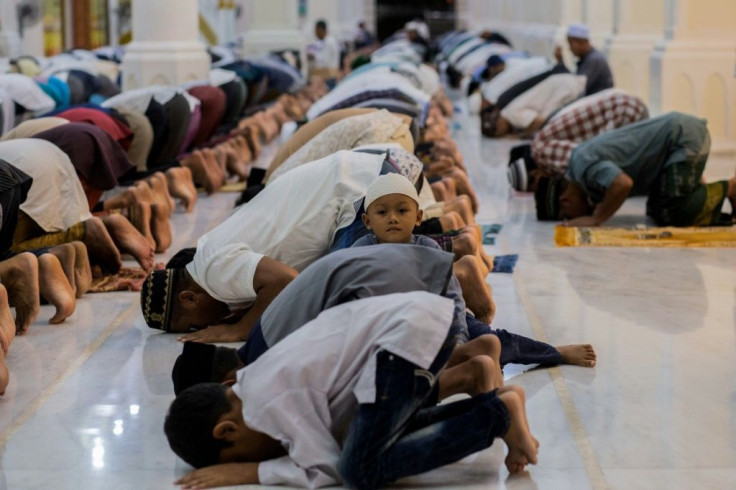When Is Ramadan 2022? Fasting Rules, Health Tips For Muslim Holy Month
The holy month of Ramadan is celebrated annually on the ninth month of the Islamic calendar. This year, Ramadan, which is based on the lunar cycle, will most likely begin on April 2.
In the United States and Europe, astronomical calculations decide the beginning of Ramadan, and for this year, it begins from the eve of April 1. However, this could be subject to change, depending on whether the crescent moon is sighted over Saudi Arabia city Mecca, the birthplace of Muhammad.
Saudi Arabia and most Arab countries are expected to sight the new moon on April 1. Other countries like Morocco, Iran, Pakistan and India may see the new moon on the following day as the current lunar month started one day later for these countries. There is a chance the start of Ramadan could even arrive a day later if the moon is not seen.
Muslims across the world mark Ramadan by fasting from dawn (fajr) until dusk (maghrib) (abstaining from both water and food), praying five times a day and almsgiving. This annual observance is regarded as one of the five pillars of Islam.
The five pillars in full are: Declaration of Faith (Shahada), Prayers (Salah), Charity (Zakat), Fasting (Sawm) and Pilgrimage (Hajj).
Fasting must be done by all able-bodied Muslim adults, which means children, pregnant, breastfeeding or menstruating women, or those who are very ill are exempt, according to Muslim Aid. Those who are traveling can also skip some days of fasting during the Ramadan month.
Muslims break their fast by consuming "iftar" immediately after sunset. The meal mostly consists of fruits and dates. Muslims chant prayers while breaking the fast. Several Muslims also study and recite the Quran during Ramadan.
The fasting month ends May 1, following which Muslims celebrate Eid, which starts once the date of sighting of the new moon is confirmed.
Fasting during Ramadan can get rigorous and in some countries, where it falls during summers, the observance period could stretch up to 22 hours. Here are some survival tips:
1. Prior to Ramadan, a Muslim should always consult with a doctor if he/she could observe the fast, as some health conditions may deteriorate due to fasting.
2. The meal before the start of fasting (suhoor) must be planned carefully so that one gets sufficient nutrients and hydration. Skipping this meal is a mistake and can make it difficult for a person to fast.
3. During the hottest times of the day, stay in cool areas (indoors or in the shade, preferably) and limit physical activity to avoid dehydration.
4. Enough water must be consumed after breaking the fast, preferably at least eight glasses by bedtime.
5. When eating, the diet must consist of healthy and nutritious food, like lentils, beans, nuts, eggs and yogurt.

© Copyright IBTimes 2025. All rights reserved.





















